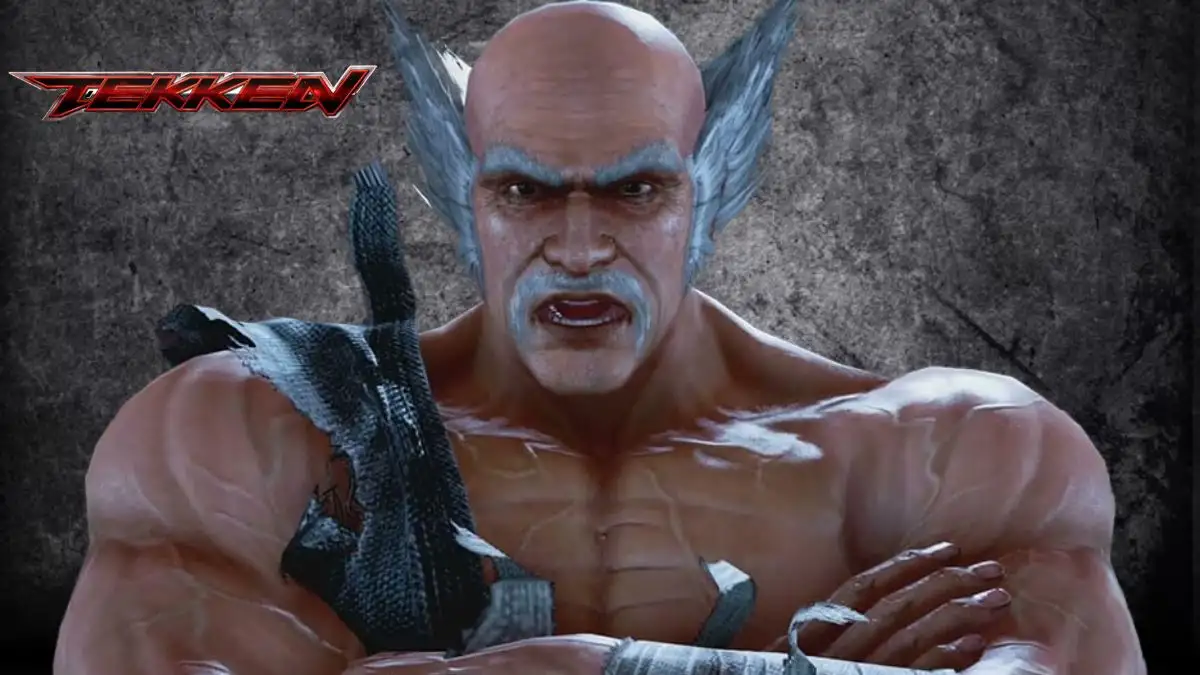Is Heihachi Dead? Who is Heihachi Mishima in Tekken?
by S Samayanka
Updated Jan 29, 2024

Is Heihachi Dead?
Yes, Heihachi is dead in the Tekken series. After defeating Claudio and discovering their shared goal of eliminating the devil gene, Heihachi confronts his son Kazuya at a volcano. The intense battle concludes with Heihachi's demise as he is thrown into a river of molten lava. His permanent death is known only to a select few by the time of Tekken 8.
Surprisingly, a previously undisclosed character named Reina, later revealed as Heihachi's illegitimate daughter, inherits some of his moves and is secretly a third Devil Gene user, much like Kazuya and Jin. Heihachi remains an integral part of the series' lore, and his death marks a significant chapter in the ongoing saga of the Mishima family and the struggle against the devil gene.
Gain the upper hand in the game competition by delving into Fresherslive for essential game knowledge and effective strategies. Our platform offers valuable insights that can give you a competitive edge. Stay ahead of the game by accessing the expertise and guidance available here.
Who is Heihachi Mishima in Tekken?
Heihachi Mishima is a pivotal character in the Tekken fighting game series, emerging as its primary antagonist. Conceived by Bandai Namco Entertainment, he debuted in the 1994 release as the formidable boss figure. Heihachi assumes the role of CEO/leader of the Mishima Zaibatsu, a military conglomerate founded by his father, Jinpachi Mishima.
His complex narrative unfolds across multiple installments, establishing a compelling family feud marked by revenge and power struggles among Mishima relatives. Heihachi's central goal is to overcome his son, Kazuya Mishima, and grandson, Jin Kazama.
Tekken 7 delves into his backstory, concluding with his demise at the hands of Kazuya, excluding him from Tekken 8. Heihachi is the parent of two acknowledged illegitimate children: Lars Alexandersson, a hero introduced in Tekken 6, and Reina, a character in Tekken 8 who mirrors his moves and is revealed as a Devil Gene user akin to Kazuya and Jin.
How Many Kids Does Heihachi Have?
Heihachi Mishima, the iconic character in the Tekken series, has three known children. His eldest son is Kazuya Mishima, a central figure in the Mishima family feud and a key character in the Tekken narrative. The second is Lee Chaolan, whom Heihachi adopted during a business trip to China, raising him alongside Kazuya. Lee, however, harbors resentment towards Heihachi. The third child, revealed later in the series, is Reina, introduced in Tekken 8 as Heihachi's illegitimate daughter.
This lineage contributes to the complex family dynamics, conflicts, and power struggles that define the Mishima saga. Each child plays a unique role in the overarching storyline, contributing to the richness and depth of Heihachi's character development throughout the series.
Tekken Heihachi Daughter
In the Tekken series, Heihachi Mishima's daughter is named Reina. Introduced in Tekken 8, Reina is portrayed as Heihachi's illegitimate child and remains a significant character in the ongoing Mishima family saga. Like her half-brothers Kazuya and Lars, Reina inherits some of Heihachi's fighting moves.
Notably, she possesses the Devil Gene, a genetic anomaly associated with supernatural powers, which adds a layer of complexity to the Mishima family's tumultuous history. Reina's existence, previously unknown to Heihachi, adds intrigue to the narrative and further explores the consequences of the Mishima family's tangled relationships and the legacy of the Devil Gene.
Tekken
Tekken, a Japanese media franchise, debuted in 1994 and is renowned for its series of fighting games developed by Bandai Namco Entertainment. Focused on the King of Iron Fist Tournament hosted by the Mishima Zaibatsu, the narrative revolves around characters vying for control of the company, accentuating the Mishima family conflict. Gameplay highlights hand-to-hand combat with elements like blocks, throws, and ground fighting, introducing 3D animation and later incorporating combos and special moves.
Tekken's critical acclaim and commercial success stem from landmark titles like Tekken 2 and Tekken 3, praised for immersive experiences. With ten main entries, eight spin-offs, and adaptations into films, Tekken has shipped over 55 million copies, solidifying its status as the third best-selling fighting game franchise. It is lauded for elevating the standards of the genre, with critics praising its gameplay mechanics and enduring replay value.
Is Heihachi Dead - FAQs
No, Heihachi is dead in the Tekken series, having met his demise at the hands of Kazuya in Tekken 7.
Heihachi has three known children: Kazuya, Lee Chaolan (adopted), and Reina (illegitimate daughter introduced in Tekken 8).
Reina, Heihachi's illegitimate daughter, inherits some of his moves in Tekken 8 and is revealed as a third Devil Gene user.
The Devil Gene is a genetic anomaly in Tekken associated with supernatural powers, inherited by characters like Kazuya, Jin, and Heihachi's daughter Reina.
Tekken is renowned for introducing 3D animation, combos, and special moves, setting standards in the fighting game genre with immersive gameplay, critical acclaim, and over 55 million copies shipped by 2023.







